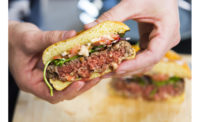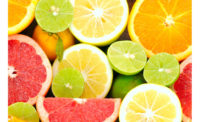A new study from CBD Marketing, Chicago, confirms Millennials' pivotal role in upending long-standing "truths" within the food, beverage and supplement categories. The research analyzed 12.5 million social media posts and other online commentary specific to the three product groups from U.S. Millennials, ages 18-35. The study covered a 1-year period ending in August. Women created 62% of the content; men 38%. More than 80% of the content and posts appeared on social media platforms.
"Consumer products companies are obsessed with Millennials, and with good reason," says Lori Colman, co-CEO. "They are one-fourth of the population and represent $10 trillion in lifetime buying power. Millennials share their opinions and buying habits online via social media platforms and on other sites. Businesses and brands that mine this treasure trove of online data will be the ones that market their products successfully."
Millennials and food (based on analyzing 8.6 million online posts and comments):
- Want healthy, natural food, like to cook and prep meals and support alternative food distribution via meal delivery and meal services.
- Buy from environmentally conscious manufacturers and purveyors; want transparency.
- Love smoothies; breakfast is important; gravitate to cultural flavors and foods like Scandinavian and Indian.
- Not interested in dieting or fat-free foods, TV dinners or other "helper" convenience foods, snack foods or foods that satisfy "cravings," steak and potatoes.
- Trader Joe's and Whole Foods are in; Wal-Mart and multi-purpose grocery stores are out.
Millennials and beverages (based on analyzing 2.2 million online posts and comments):
- Big on plant-based milks, green teas and fermented beverages like kombucha, cold brew.
- "No thank you" to soda and pop (average annual consumption has dropped to 38 gallons per person in 2016 from 54 gallons per person in 1998), diet shakes and fruit juices like apple, cranberry and orange.
- Not interested in dairy milk (average annual consumption has dropped to 18 gallons per person in 2016 from 30 gallons per person in 1976) or plain old coffee.
Further segmenting this tech-savvy Millennial population can provide deeper insights. For example, people at the young end of the Millennial spectrum are often still living at home or are in college. At the older end, they are working and starting families. Those differences can impact preferences.
"Once a food, beverage or supplement company has a sightline into these demographic and psychographic differences, they can be addressed with highly targeted social marketing, SEO/SEM and relevant content. Having research tools of the type CBD utilizes creates the foundational knowledge that informs smart business and product marketing decision-making," says Colman.


